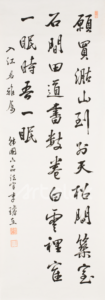Lee Jun (1859–1907): Korean Envoy to The Hague and National Reformer
Lee Jun was born in 1859 in Bukcheong during the late Joseon Dynasty. Educated in classical Chinese, he later became a prosecutor known for boldly indicting royal figures for corruption. Despite official resistance, he upheld legal integrity, leading to his dismissal just a month into his judicial post.
An early member of the Enlightenment Party and the Independence Club, Lee pursued further legal studies in Japan. Upon returning, he promoted nationalist ideals through education, founding schools and leading the National Education Association.
In 1907, he was appointed as a secret envoy to the Second Hague Peace Conference, aiming to denounce Japan’s illegitimate occupation of Korea. Although barred from the conference, his mission brought international attention. He died in The Hague under unclear circumstances—initially rumored as suicide, later believed to be illness-related.
Posthumously honored in 1962 with the Order of Merit for National Foundation, Lee Jun’s remains were repatriated in 1963. His statue now stands in Jangchungdan Park, and memorials in The Hague commemorate his global diplomatic legacy.

